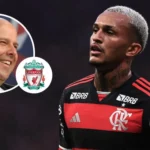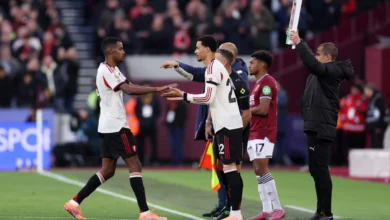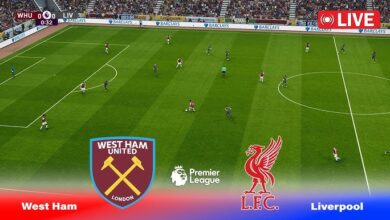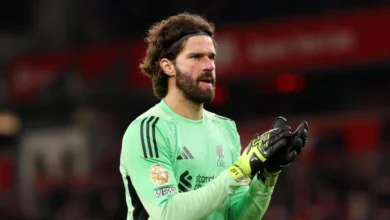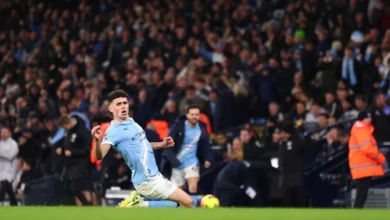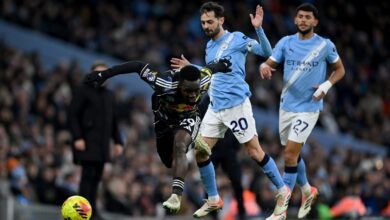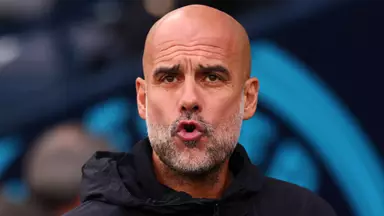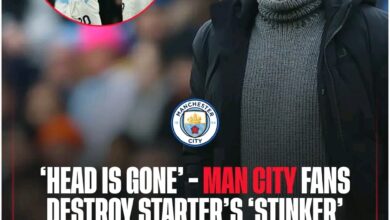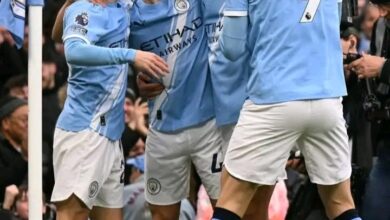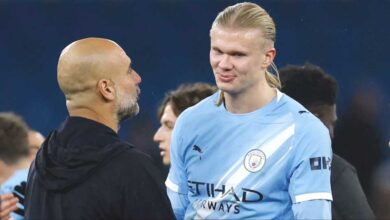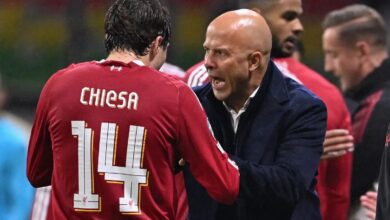I didn’t like it very much” – Fabinho opens up on Jurgen Klopp call that changed his future
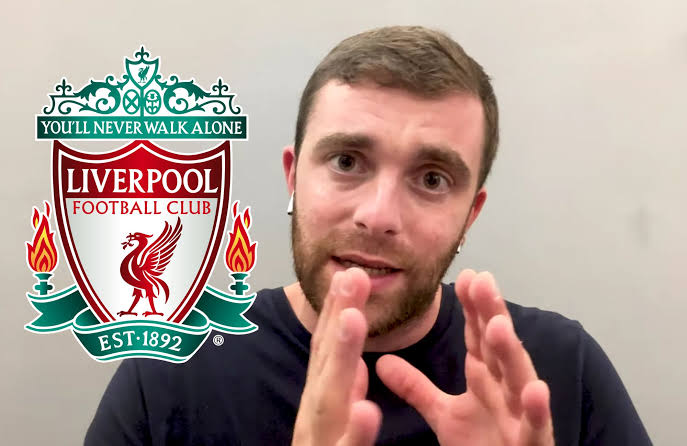
Fabinho’s name will forever be written in Liverpool history as one of the pillars of Jurgen Klopp’s golden era. When he arrived from AS Monaco in 2018, many fans didn’t know exactly what to expect from the tall, calm Brazilian with the long strides and composed passing style. But it didn’t take long for him to win hearts. He became the wall in front of the defence, the anchor that allowed the likes of Mohamed Salah, Sadio Mane, and Roberto Firmino to shine without worrying too much about what was happening behind them. In just a few months, it was clear that Liverpool had found their perfect defensive midfielder — a man who could read danger before it even appeared, break up attacks, and start his team’s own moves with precision. Fabinho was not the loudest man on the pitch, but he was one of the most important. Without him, Liverpool’s midfield often looked exposed. With him, they looked almost unbreakable.
Over the next five years, Fabinho became a regular starter and a key part of the team’s spine. Alongside players like Virgil van Dijk, Jordan Henderson, and Alisson Becker, he helped form the backbone of a Liverpool side that would go on to conquer England, Europe, and the world. He played 219 matches for the club, and whenever there was a big game, Fabinho was almost always in the starting XI. He was there when Liverpool won the Champions League in 2019, he was there when they lifted their first Premier League title in 30 years in 2020, and he was there for countless unforgettable nights at Anfield. For many fans, it felt impossible to imagine a Liverpool team without him.
But football is a game that never stops moving, and even the most trusted names can suddenly find themselves facing a different reality. By the summer of 2023, whispers began to grow that Klopp was planning a major rebuild of Liverpool’s midfield. The previous season had been a tough one — injuries, inconsistent performances, and a sense that the team’s once-unstoppable engine room had begun to lose its edge. Some players were getting older, and the intense playing style that had brought Liverpool so much glory was starting to take its toll. James Milner, a warrior for the club, was nearing the end of his career. Jordan Henderson, the captain, was linked with a shock move to Saudi Arabia. And then there was Fabinho — still loved by the fans, still respected, but suddenly part of conversations about potential departures.
When Henderson eventually left for Al-Ettifaq and Milner joined Brighton, Fabinho might have thought his place was safe. After all, he was younger than both of them and had been such a vital part of the team. But football decisions are not always about age or history. Sometimes, they are about money, about the timing of offers, and about the direction a manager wants to take the squad. Out of nowhere, an offer arrived from Saudi Pro League club Al-Ittihad. The Saudi league was aggressively chasing top European talent at the time, with big names like Cristiano Ronaldo, Karim Benzema, and N’Golo Kante already making the move. For Fabinho, the offer was huge — financially rewarding and part of a growing football project in the Middle East.
Still, his heart was at Liverpool. He had no desire to move to another European club, no hunger to leave Anfield behind for the sake of change. In his mind, Liverpool was the best place in the world to play football, a place where he could still improve, compete for trophies, and enjoy the passion of the fans. But the reaction from the club’s directors surprised him. Instead of rejecting the bid outright, they considered it a good deal — both for him and for Liverpool. That was the first sign that perhaps things were shifting in ways he hadn’t expected.
- Fabinho decided to speak directly to Klopp. He wanted to hear from the man who had brought him to Liverpool, the coach who had trusted him in the biggest matches, the man he respected deeply. In his mind, this conversation could have been the turning point — the moment Klopp told him he was still essential, that he was still at the heart of his plans. If Klopp had said those words, maybe Fabinho would still be wearing red today. But the conversation didn’t go the way he hoped.
When Fabinho told Klopp about the offer and asked for his opinion, the German’s response was simple: if there are players who want to leave, he will not hold them back. It was not a statement pushing him out the door, but it was also not the reassurance Fabinho wanted to hear. It left the decision entirely in his hands, but in doing so, it also sent a message — maybe Liverpool were ready to move on. For Fabinho, those words “opened the door” for him to leave, and he admitted later that he didn’t like it very much. He had hoped for a fight to keep him, but instead, he was given the freedom to walk away.
And so, the Brazilian midfielder made his choice. He accepted Al-Ittihad’s offer, not in anger or bitterness, but with a sense that the chapter at Liverpool had come to a natural close — even if it wasn’t the ending he had imagined. He left peacefully, carrying no grudges, and spoke only with love about the club and the fans. “Liverpool is a club I love,” he said. “But the things that happened at the time steered my life towards Arabia. I left in peace and happy with my decision.”
His departure was part of a massive transformation in Liverpool’s midfield that summer. Alongside Milner and Henderson, Fabinho’s exit cleared the way for new arrivals: Ryan Gravenberch, Alexis Mac Allister, and Dominik Szoboszlai. Klopp was building a new generation — younger, fresher legs for the battles ahead. For some, it was a necessary evolution. For others, it felt like the breaking apart of a legendary unit too soon. Only time would tell whether the decision was right.
Meanwhile, in Saudi Arabia, Fabinho quickly adapted to life with Al-Ittihad. The football was different, the pace not as relentless as the Premier League, but the ambition of the league was real. Al-Ittihad were not just signing stars for the sake of it — they wanted titles, dominance, and global attention. In his first season, Fabinho helped them win the Saudi Pro League title, adding another medal to his collection. Surrounded by high-profile teammates and playing in front of passionate fans, he found a new challenge to embrace. By the summer of 2025, he was preparing for his third season in Saudi Arabia, with the goal of retaining the league title and continuing to be a leader on and off the pitch.
Looking back, Fabinho’s Liverpool story is one of loyalty, success, and a bittersweet ending. He arrived as part of Klopp’s first great rebuild, became a crucial piece in the machine that won it all, and left as part of another rebuild — one designed to prepare the club for the future. His exit showed that in football, even the most important players can find themselves at a crossroads when circumstances change. Sometimes, a single conversation can shape a career. For Fabinho, Klopp’s words — not intended to push him away, but also not spoken to keep him close — were the moment his path turned towards Saudi Arabia.
For the fans, Fabinho will always be remembered as “The Lighthouse,” the calm presence who guided the team through storms, who allowed the attacking stars to shine without fear, and who lifted trophy after trophy with quiet determination. His time at Liverpool may have ended earlier than some wanted, but the memories remain — the crunching tackles, the clever interceptions, the long passes that started attacks, and the way he stood tall in the biggest games.
And somewhere, deep inside, there will always be a part of him that belongs to Anfield. The roar of the Kop, the feeling of walking out in the red shirt, the knowledge that he was part of something truly special — those things don’t fade easily. Life took him to a new chapter, but the story he wrote at Liverpool will be told for years to come.

